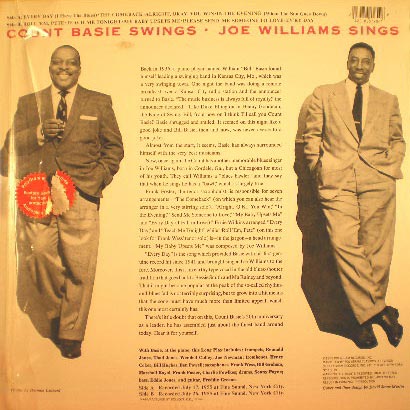Posts Tagged Singing
Like A Needle In A ‘Reckerd’ Groove
Posted by Gavin Bradley in Singing on May 18, 2009
Further to the idea of micromanaging each syllable a singer utters, I want to point out that the natural way we pronounce words when we speak isn’t always the best way to pronounce them when we sing.
Why did Mick Jagger, and the great majority of all British rock’n’rollers from the get go, lose their limey accents and sound convincingly American when they opened their mouths to sing? It’s so common that a lot of us think it’s impossible to sing any other way. And yet Lily Allen retains every bit of her Britishness on record. It’s a choice.
And if a singer doesn’t make cool and pleasant choices–naturally or through trial and error–sometimes a producer helps them along.
In 2000 a young female R&B singer was signed to an American major label cutting her first album and a friend of mine was producing. One of the phrases in the chorus was ‘like a needle in a record groove’. In the girl’s natural speaking voice, she pronounced the word ‘recorrd’. Her sung pronunciation was more like the cooler and often-used ‘rekkid.’ But the producer asked her to sing ‘reckerd,’ because in the context of the song it the coolest choice: more retro, and therefore more current.
Don’t kid yourself…choices like this are made at the microphone every day. Whether the result is an honest representation of who the artist actually is, or more a persona the producer is designing, the identity of the artist on the final recording has to be likable! If the vocalist doesn’t make good choices naturally upon opening their mouth, the producer is left with no other choice but to instigate experimentation of this kind.
Joe Williams Siiiiiiings It
Posted by Gavin Bradley in Singing on May 17, 2009
I was never much into the blues because–although I recognized it was the forefather of jazz and rock’n’roll, and that, rooted in slave songs, it had this ingenious function of taking misery and flipping it into light commiseration–it struck me as overly macho and formulaic.
When I was a kid an older jazz freak friend loaned me a disc by Joe Williams and it was okay, but at the time I preferred Miles Davis and John Coltrane to most vocal jazz. Then a few years ago I found ‘Count Basie Swings, Joe Williams Sings!’
It’s a collection of blues songs…but Williams’ masterful interpretations are backed by the searing hot jazz of Basie’s big band. Although it’s hard to imagine now, this pairing must have been a modern, daring concept in 1958 akin to the idea of a hard techno remix of an R&B song in the mid-90s.
The master tapes for the stellar first side of the LP went missing, so the first four tracks on the CD version had to be salvaged from the original vinyl master. The pops and clicks of vinyl only add to the nostalgic quality.
It’s difficult to explain just how masterful Joe is as a singer, because it’s hard to separate his god-given vocal capabilities and his own inventiveness. He’s a baritone with a crazy low range, but he’s also effortless and clear in his high falsetto…with a quirky sibilance on top (his pronunciation of the consonant ‘s’).
All good singers have a command of their tone, resonance and breathiness at a given moment, but he seems to have full command of the degree of raspiness he introduces, and the lilting effect that happens when people go up into their falsetto mid-syllable…both things that tend to be happy accidents for other singers.
Often he’ll change the swing of his delivery on a dime, leaving the band playing ‘straight’ behind him while, after establishing the rhythm of the song, he suddenly swings his vocal in a new, unexpected way. And sometimes he’ll change it again before the song is through. I don’t think I’ve heard this done in quite this way before or since Joe Williams. On this record he’s got personality to spare…in the way he pronounces the word ‘love,’ for example on ‘The Comeback,’ when he sings ‘girl you know I looohhhhhhve you’…and his ad libbed ‘do not you feel mighty lonesome’ (as opposed to ‘don’t you feel mighty lonesome’) on ‘In The Evening’. The man is just cool.
But the piece-de-resistance in his bag of tricks is his ridiculous lung capacity. I love it when he shows off at the end of both ‘In The Evening’ and ‘Every Day I Have The Blues’ by holding notes long enough for you to make a five-course meal, eat it and wash the dishes.
Though it’s unthinkable these days, each of these recordings were made in one continuous take. Since these musicians cut their chops playing live for decades, I’m sure it was natural to get a take that was close to perfection after a few tries. But it seems like Joe had a knack for taking any vocal imperfections that surfaced while the red record light was on and riffing on them, playing with them to make them into an asset of that particular performance. Again, it all seems within his control, so no one will ever know what moments were accidents.
Joe appeared on a few episodes of the Cosby Show as Claire Huxtable’s father. Before he died, in ’99, a journalist friend of mine met him at a club in NY in ’99, and I’m told that Joe had one hell of a high opinion of himself. Modesty and humility are attractive qualities, but I hate to say it: I agree with Joe’s on this one.
Emotional Utterances
Posted by Gavin Bradley in Production, Singing on May 15, 2009
Some singer, at some point, must have naturally began adding a breathy ‘h’ to the ends of words. And some producer must have heard it and realized that this makes singers sound like they’re getting emotional. And when a listener hears the singer getting emotional, they in turn get emotional. That’s good for business, when you’re in the business of making people feel!
I’ll show you what I mean…check out Kelly Clarkson adding a big ‘h’ to the end of almost every line in the first verse of ‘My Life Would Suck Without You’. I’m using the Chris Ortega mix because the vocal is upfront:
This reminds me of the way marketing has developed into a science in the 21st century. Less gut and more tried-and-true, market-researched technique. Producers, myself included, are hyperconscious of ways that we can bring emotion to a song by manipulating the singer’s performance on a syllable-by-syllable basis. (That’s if the singer doesn’t already do it naturally.) It’s pretty much on the checklist that’s been created by the Idol franchise for what a good singer needs to be able to do. At the McDonald’s of the music world, they ask ‘would you like breath with that’?
Hey, it works, and there’s nothing wrong with it…but I prefer it when emotional utterances come out naturally in the performance rather than being pulled from a palette of what we now know works. I’m sure Otis Redding didn’t pre-meditate what he was going to utter in between syllables…even if he became aware of his own arsenal of signature vocal tricks. Do we know a bit too much now about how things work? When you’re really feeling what you’re singing, you don’t have to design how you’re going to deliver each part of it.


